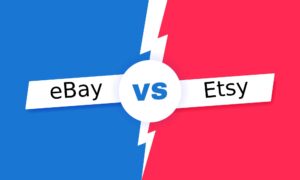Last Updated on 2 years ago by Nicky Johnson
In today’s digital age, the gaming industry is booming, and indie game developers have a unique opportunity to share their creations with a global audience. However, selling your indie game online requires a well-thought-out strategy.
In this comprehensive guide, we will explore various options and strategies to help you succeed in the competitive world of online game sales.
Whether you’re a seasoned developer or just starting, this article will provide valuable insights to maximize your game’s reach and profitability.

Leveraging Established Platforms
Blog Contents
- Leveraging Established Platforms
- Building Your Own Website
- Running Crowdfunding Campaigns
- Exploring Niche Communities
- Frequently Asked Questions (FAQs)
- How can I get noticed among the sea of indie games online?
- Is it essential to have a marketing budget for my indie game?
- Should I consider early access for my indie game?
- How do I approach game influencers for collaborations?
- What’s the ideal price point for selling my indie game?
- How can I protect my intellectual property when selling my indie game online?
- Conclusion
When it comes to selling your indie game online, leveraging established platforms is a tried-and-true strategy that can significantly impact your success. These platforms, such as Steam, Epic Games Store, and itch.io, offer a multitude of benefits for indie game developers.
Firstly, these platforms come with built-in user bases in the millions. Steam, for instance, has a vast community of gamers who regularly visit the platform in search of new and exciting games.
By showcasing your indie game on established platforms like Steam and itch.io, you gain access to a ready-made audience, making it easier to sell indie game online to a wide range of gamers.
Additionally, established platforms provide valuable marketing opportunities. Many of them offer features like front-page promotions, featured slots, and curated lists that can highlight your game to users browsing the platform. This extra exposure can lead to increased sales and recognition.
Furthermore, these platforms often provide comprehensive tools and analytics for developers. You can track user engagement, analyze player feedback, and make data-driven decisions to improve your game’s performance.
However, it’s essential to keep in mind that competition can be fierce on these platforms. With thousands of games vying for attention, standing out is a challenge. This is why it’s crucial to invest time in crafting an enticing store page, including high-quality visuals, engaging descriptions, and compelling trailers.
Building Your Own Website
Creating your own dedicated website for your indie game is a powerful way to take control of your game’s online presence. It provides a platform where you have complete creative freedom, allowing you to showcase your game in the best possible light.
Your website should be user-friendly, visually appealing, and optimized for search engines. A well-designed website attracts potential players and serves as a hub for all your game-related information. Here are some key elements to consider:
- Homepage: Your homepage should immediately grab visitors’ attention with stunning visuals and a clear call to action. Make it easy for visitors to learn about your game and access other parts of your website.
- Game Details: Create detailed pages that provide information about your game, including its story, gameplay, features, and system requirements. Include high-quality screenshots, trailers, and concept art to give visitors a comprehensive view of your game.
- Blog or News Section: Maintain a blog or news section where you can regularly post updates about your game’s development, release dates, and other relevant news. This not only keeps your audience informed but also improves your website’s search engine visibility.
- Contact and Support: Offer easy ways for visitors to contact you for inquiries, support, or feedback. Responsive customer support can leave a positive impression on potential players.
- Community Engagement: Integrate social media links and community forums if applicable. Building a community around your game can foster a dedicated fanbase that eagerly awaits its release.
- Search Engine Optimization (SEO): Optimize your website’s content, meta descriptions, and images to improve its search engine ranking. This can drive organic traffic to your site.
In today’s digital landscape, social media platforms like Twitter, Facebook, and Instagram play a pivotal role in marketing indie games. Regularly posting engaging content, including game updates, concept art, and behind-the-scenes insights, can build a dedicated community of fans eagerly awaiting your game’s release.
Collaborating with Influencers
Influencer marketing can be a game-changer for indie developers. Partnering with YouTubers, Twitch streamers, or bloggers who specialize in gaming can expose your game to a broader audience. Make sure to choose influencers whose content aligns with your game’s style and genre.
Running Crowdfunding Campaigns
Crowdfunding has emerged as a valuable avenue for indie game developers to secure funding, generate buzz, and build a dedicated community around their projects. When it comes to running a successful crowdfunding campaign for your indie game, several key factors can make all the difference.
1. Clear and Compelling Pitch: Your crowdfunding campaign’s success hinges on your ability to convey your game’s concept and potential to backers. Create a clear and compelling pitch video that highlights your game’s unique features, gameplay, and why it deserves support. Use visuals, storytelling, and your passion to engage potential backers emotionally.
2. Set Realistic Goals: While aiming high is admirable, it’s crucial to set realistic funding goals. Carefully calculate your budget, including development costs, marketing expenses, and contingency funds. Transparency about how you’ll use the funds instills trust in backers.
3. Engage with Your Audience: Communication is key throughout the campaign. Regularly update your backers on your progress, share behind-the-scenes content, and address questions and concerns promptly. Show that you value your backers’ support and feedback.
4. Attractive Rewards: Offer enticing rewards that cater to different backers’ preferences and budgets. Exclusive in-game items, early access, and physical merchandise like posters or t-shirts can incentivize backers to contribute at higher tiers.
5. Timing and Promotion: Plan your campaign timing strategically. Consider launching during gaming events, conventions, or when there’s a buzz around similar projects. Leverage social media, gaming forums, and email newsletters to promote your campaign to a wider audience.
6. Build a Community: Beyond funding, crowdfunding campaigns are an opportunity to build a dedicated community around your game. Engage with your backers not just during the campaign but throughout development and beyond. Their support can extend beyond the campaign’s end.
7. Show Gameplay: Potential backers want to see what they’re investing in. Provide gameplay footage that demonstrates your game’s mechanics, graphics, and overall appeal. A playable demo can also be a powerful tool to convince backers of your game’s potential.
Exploring Niche Communities
Indie game developers often find success by tapping into niche communities that align with their game’s genre, style, or theme. These communities can be a goldmine of dedicated players who are genuinely interested in your game. Here’s how to explore and engage with niche communities effectively:
1. Research and Identify Niche Communities: Start by researching online forums, subreddits, social media groups, and Discord servers related to your game’s genre or theme. Look for active communities where gamers discuss and share their passion for similar games.
2. Lurk and Listen: Before diving in, spend time lurking and listening. Understand the community’s norms, preferences, and what type of content resonates with its members. This will help you tailor your approach effectively.
3. Engage Authentically: When you start participating, do so authentically. Share your knowledge, insights, and experiences related to the niche. Avoid overly promotional language initially; instead, focus on building relationships and trust.
4. Share Teasers and Updates: Once you’ve established yourself within the community, you can begin sharing teasers and updates about your game. Highlight elements that align with the community’s interests, whether it’s unique gameplay mechanics, art style, or storytelling.
5. Seek Feedback: Niche communities are excellent places to gather feedback from potential players who are passionate about your game’s genre. Be open to constructive criticism and use it to refine your game.
6. Collaborate and Cross-Promote: Explore opportunities for collaboration within the community. Partnering with content creators or influencers who are active in the niche can extend your game’s reach and credibility.
7. Respect Community Guidelines: Every community has its rules and guidelines. Respect these rules, avoid spamming, and always contribute positively. Building a reputation as a respectful and helpful member is vital.
8. Offer Exclusive Content: Consider offering exclusive content or early access to the community. This not only rewards community members but also fosters a sense of ownership and support.
Offering Free Demos
Providing free demos of your indie game can give players a taste of what to expect and build anticipation for the full release. Ensure the demo is polished and showcases your game’s unique selling points.
Participating in Game Conventions and Events
Attending gaming conventions and events, either physically or virtually, can provide valuable exposure for your indie game. Networking with industry professionals and showcasing your game to attendees can lead to partnerships and collaborations.
Expanding to Multiple Platforms
Consider releasing your indie game on various platforms, including PCs, consoles, and mobile devices, to reach a broader audience. Each platform has its unique user base, and diversifying your distribution can lead to increased sales.
Frequently Asked Questions (FAQs)
How can I get noticed among the sea of indie games online?
To stand out, focus on creating a captivating trailer, engaging with your community on social media, and seeking coverage from gaming news outlets. Building a strong online presence is key.
Is it essential to have a marketing budget for my indie game?
While a budget can help boost your game’s visibility, there are cost-effective marketing strategies, such as social media marketing and community engagement, that can yield great results without a hefty budget.
Should I consider early access for my indie game?
Early access can be a great way to gather player feedback, polish your game, and build a dedicated community. However, ensure your game is in a playable and enjoyable state before opting for early access.
How do I approach game influencers for collaborations?
Research influencers whose content aligns with your game, send them personalized messages and be clear about your expectations and what you can offer them in return for promoting your game.
What’s the ideal price point for selling my indie game?
The price should reflect your game’s quality, content, and target audience. Research similar indie games and consider player feedback to determine a competitive yet profitable price.
How can I protect my intellectual property when selling my indie game online?
Consider consulting with a legal professional to understand copyright and intellectual property laws. Additionally, use licensing agreements and terms of service to protect your game.
Conclusion
Exploring your options to sell your indie game online is a dynamic journey filled with opportunities and challenges.
By utilizing established platforms, leveraging social media, collaborating with influencers, and engaging with niche communities, you can increase your game’s visibility and ultimately achieve success in the competitive world of online game sales.
Remember that building a dedicated community and delivering a quality gaming experience are key to long-term success in the industry.







